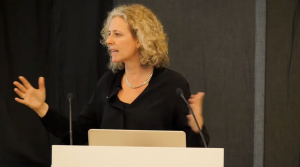Chief social worker outlines ingredients for successful innovation in children's social care

Published by Professional Social Work magazine, 12 October, 2022
Clear outcomes, strong leadership and spreading good practice are integral to innovation in children's social care.
That was the message from chief social worker Isabelle Trowler at a recent House of Commons Committee exploring the progress of projects launched to improve the life opportunities of some of Britain's most vulnerable children.
In 2014 the Department for Education allocated £212 million for local councils to deliver innovation programmes aimed at supporting children in care and preventing more children from ending up in the care system.
A total of 94 projects were developed, of which 58 (62 per cent) have continued since funding finished, and 38 (40 per cent) have been scaled up. A further 20 (21 per cent) have been developed into new projects, and 30 (32 per cent) closed.
Several innovation programmes were mentioned as success stories now being scaled up: the Strengthening Families programme, the Mockingbird foster carers scheme, Family Drug and Alcohol Court Programme and Family Group Conferencing.
Isabelle Trowler said: “We have a much better evidence base. We have a framework called the seven-seven-seven framework, which clearly shows the principles of practices and the enablers of that practice. If you do those things, you are much more likely to get a better outcome for a child and their family.”
Acknowledging the pressures on local authorities who are now facing further cuts, the chief social worker remained optimistic about the future of innovation projects in children's social care: "Obviously, I recognise that there are huge challenges out there both for local government and central government, but I suppose that if you look at what has happened historically over the course of this programme, and because it has had such positive gains, we are in a good place to be able to argue for continued investment."
Considering areas for improvement, Trowler said: "We have a good stock of outstanding authorities now. Previously we did not, so that is really positive - 56 per cent of authorities are either good or outstanding. The 17 in the “requires improvement” group, are doing that; they are meeting national standards, but they need to improve to be good.
"Our regulator is saying that things are getting better."
Speaking of the importance of good leadership and allowing effective practice to flourish, she added: "We have a range of leadership programmes in place.
"In the authorities where there is a struggle, it is often because they have not managed to create that right practice context for practitioners, so practitioners are just not able to do the job that they came in to do.
“There are a set of principles about most effective practice and a set of enablers that you need to have in place in order for that practice to flourish. If you do not have those things, you are much less likely to get good outcomes for children and families."
Trowler also paid tribute to the thousands of social workers who showed resilience and adaptability during the Covid-19 pandemic, saying there were important lessons to take forward.
"We were, at the beginning of the pandemic, very concerned about how workforces would hold up.
"They did a fantastic job, I have to say. We broke new ground.
"From a children’s social care perspective, there was much more focus on how we can help families in acute crisis and really great social need. That has shifted perspective somewhat, in that many of the families that we work with just need help and we need to do that quickly."
